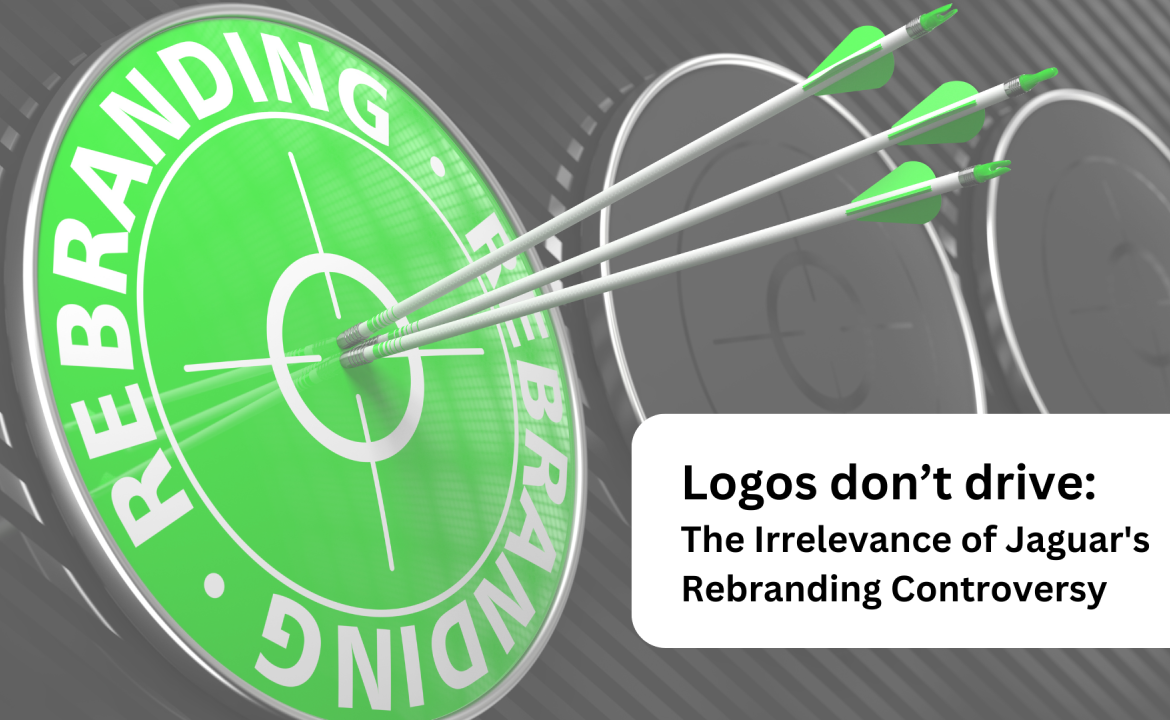Logos Don’t Drive: The Irrelevance of Jaguar’s Rebranding Controversy
In an industry where innovation and product development are the lifeblood of consumer interest, it’s intriguing that Tata Motors‘s Jaguar’s rebranding efforts have become a topic of heated debate. Shouldn’t we be more excited about the next sleek model rolling off their production line? The focus on rebranding over product highlights a critical misalignment: customers ultimately care about the value and experience a product delivers, not the logo it bears.
The Irrelevance of the Rebranding Controversy
The controversy surrounding Jaguar’s rebranding seems misplaced. While brand identity is important, it pales in comparison to the significance of delivering compelling products that meet customer needs and desires. Marketing guru Seth Godin once said, “A brand is the set of expectations, memories, stories, and relationships that, taken together, account for a consumer’s decision to choose one product or service over another.” Rebranding without substantive product innovation is akin to changing the frame without updating the picture.
Apple successfully rebranded to reflect its expansion into consumer electronics beyond computers. This shift, coupled with groundbreaking products like the iPhone and iPad, propelled Apple to become one of the world’s most valuable brands. Whereas despite the rebranding efforts of GM when it acquired Daewoo Motors and rebranded it as GM Daewoo and later as Chevrolet, the company failed to turn its fortunes around. The negative perception of Daewoo’s quality and reliability lingered, and the Chevrolet-branded vehicles did not sufficiently differentiate themselves in crowded and competitive markets. The rebranding did not address core issues such as product appeal and consumer trust, resulting in continued poor sales and leading GM to withdraw the Chevrolet brand from several markets, including India.
What Truly Matters to Customers
Customers prioritize products that offer value, quality, and innovation. Rebranding efforts are superficial if they aren’t supported by these core elements. Marketing expert Philip Kotler emphasizes, “Authentic marketing is not the art of selling what you make but knowing what to make.” The company’s energy should be better spent on developing products that excite and engage their target audience. Here are the actionable Insights for Marketers and Brand Owners:
- Focus on Product Excellence: Ensure that rebranding efforts are accompanied by product improvements or innovations that offer real value to customers.
- Engage with Your Audience: Solicit customer feedback before making significant changes to your brand or products.
- Align Branding with Vision: Any rebranding should reflect a genuine shift in company vision or strategy, not just a cosmetic update.
- Communicate Effectively: Clearly articulate the reasons behind rebranding to avoid confusion and maintain trust.
Conclusion
The debate over Jaguar’s rebranding underscores a fundamental truth in marketing: a brand’s value is ultimately determined by the products and experiences it offers, not by its logo or tagline. Companies must prioritize delivering exceptional value and innovation to their customers. For marketing practitioners and brand owners, the lesson is clear – let your products be the hero of your brand story. Rebranding should be the reflection of substantial internal changes, not a distraction from a lack of product development.
#AskKashyap #branding #marketing #consulting #kcellconsulting #jaguar #rebrading #tatamotors Jaguar Land Rover India

